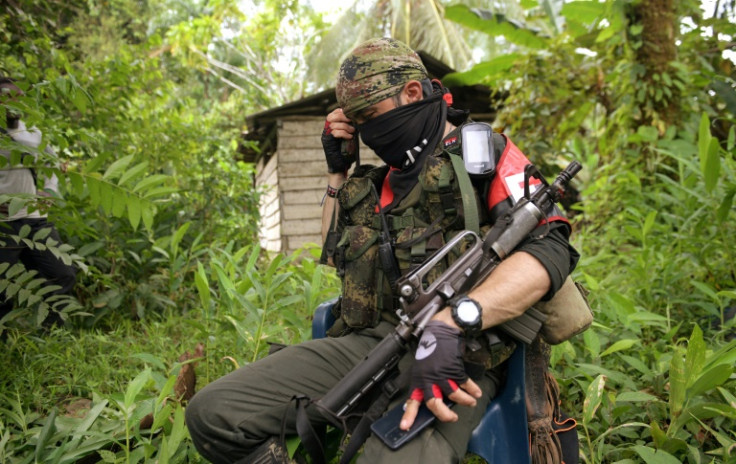
Colombia's rebel guerrilla group, National Liberation Army (ELN), has urged the government to keep its promise of funding projects for rebels to earn a livelihood, so that they can stop kidnapping civilians and demanding ransom.
Antonio García, the head of ELN, clarified on Christmas Eve that Colombian officials and journalists had circulated wrong information to the public on Dec. 17 that the rebel group had agreed to suspend kidnappings in the country if the ceasefire with the government was extended in 2024.
García admitted that such an agreement was made during a recent meeting over peace talks in Mexico City, noting that the Colombian government also agreed to create a committee that will find ways to fund the peace talks as well as the current ceasefire, which will end on Jan. 30.
The committee is also supposed to decide what activities of the rebel group will be financed by the government. According to ELN leader García, "Peace is not designed for just one side to win. Everyone must benefit, especially the country," AP News reported.
"We have not come to an agreement in the peace talks, on political, judicial or economic detentions."
The ELN group still has about 2,000 to 4,000 armed members in Colombia as well as in the neighboring country, Venezuela. The rebel group is also holding at least 38 people as hostages, as per Colombia's Defense Ministry.
Last month, the group kidnapped Colombian national soccer team striker Luis Díaz's father, Luis Manuel Díaz, from a gas station in Barrancas, a small town in the Department of La Guajira.
Alongside his father, the Colombian footballer's mother, Cilenis Marulanda, was also kidnapped, but she was rescued within a couple of hours. After a few days of negotiation, his father was also released.
Colombia has been dealing with kidnappings for several decades now. Many high-profile kidnappings took place in the 1980s and 1990s by various insurgent groups including ELN, the Revolutionary Armed Forces of Colombia, and other criminal groups.
Aside from Colombian citizens, these groups also kidnap government officials and foreigners for money, political influence, and to capture territories.
While the kidnappings may have reduced compared to the 80s and 90s, it has not completely stopped. In the early 2000s, the kidnapping rate was 3.4 cases per 100,000 people. It dropped to 0.6 cases per 100,000 people in 2018, as per Knoema.
© 2025 Latin Times. All rights reserved. Do not reproduce without permission.







